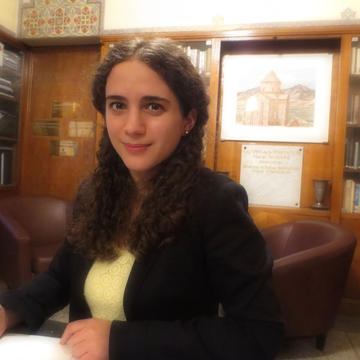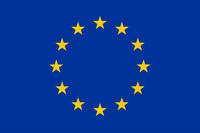ANAHIDE KÉFÉLIAN
Marie Curie Research Fellow

Email: anahide.kefelian@ashmus.ox.ac.uk
Research summary
My research focuses on the Ancient Kingdom of Armenia and its relationships with the Roman Empire, as well as the Parthian and Sassanian Empires. The Kingdom of Greater Armenia, located in a regional crossroad, has always been a singular case.
As a result of the lack of Armenian and Parthian contemporary literary sources, during my Master's degree I studied all available Roman sources about Romano-Armenian relationships. This is the reason why I focused first on Roman coinage and inscriptions dealing with Armenia. To offset the Romano-centrism point of view of the events, during my PhD I studied the Roman, Parthian and Armenian relationships through adding archaeological and numismatical data.
In order to obtain a more neutral and more comprehensive overview of Armenian history, Armenian studies have to rely on archaeological data. My Marie Curie Research Fellowship for the Roman Coin Circulation in Ancient Armenia (ROCCAA) project falls within the scope of this long-term approach. The aim is to lay the foundation of new and solid data for a better comprehensive understanding of the Armenian Kingdom, but also at the regional scale including the Roman East, the Parthian Empire and the Caucasus.
CV
Anahide Kéfélian has been a Marie Curie Fellow since 1st October 2020 in the Ashmolean’s Heberden Coin Room.
She received a Licence's degree in Art History and Archaeology at the Université Lumière Lyon 2 and she specialised in Archaeology during her Master's degree. She received her PhD from Sorbonne University, under the supervision of Giusto Traina. The PhD thesis analysed Armenian and Roman geopolitical, military and cultural relationships. Before undertaking this European Fellowship, she worked at the Faculty of Arts of Sorbonne University as a co-ordinator for 30 Research Units concerning the five year periodic evaluation of the Hcéres (High Council for Evaluation of Research and Higher Education, France).
Featured publications
2020 Les inscriptions romaines d'Arménie, in: Ricardo González Villaescusa; Giusto Traina; Jean-Pierre Vallat (eds), Les mondes romains : questions d'archéologie et d'histoire, Paris, pp. 89-100.
2020 États des lieux de la recherche dans le Sud-Caucase : enjeux politiques et idéologiques, in: Ricardo González Villaescusa; Giusto Traina; Jean-Pierre Vallat (eds), Les mondes romains : questions d'archéologie et d'histoire, Paris, pp. 419-426.
2020 with Giusto Traina, Trajan et Parthamasiris à Elégeia, in: Antonio Gonzales, Maria Teresa Schettino (eds.), Peuples et Etats à l’épreuve de la diplomatie. Entrevues, ambassades, négociations : les sons de la diplomatie ancienne, Actes du colloque, Besançon, 26-27 mars 2015,Besançon, pp. 69-91.
2016 The Roman Army and the Transmission of Latin Loan Words in Old Armenian, in: Francesca Gazzano, Lara Pagani, Giusto Traina (eds.), Greek texts and Armenian traditions. Proceedings of the International Colloquium held in Genova, 21-22 October 2013, Berlin-Boston, pp.143-162.
2015 L’autorité de Rome sur le Royaume d’Arménie : aperçu numismatique, in: ERAMA, Les mises en scènes de l’autorité dans l’Antiquité. Colloque organisé à l’E.N.S de Lyon, le 21 et 22 novembre 2013, Nancy-Paris, pp. 275-292.
Featured projects
Coin Hoards of the Roman Empire
The ROCCAA project has received funding from the European Union’s Horizon 2020 research and innovation programme under the Marie Skłodowska-Curie grant agreement No 892180.




